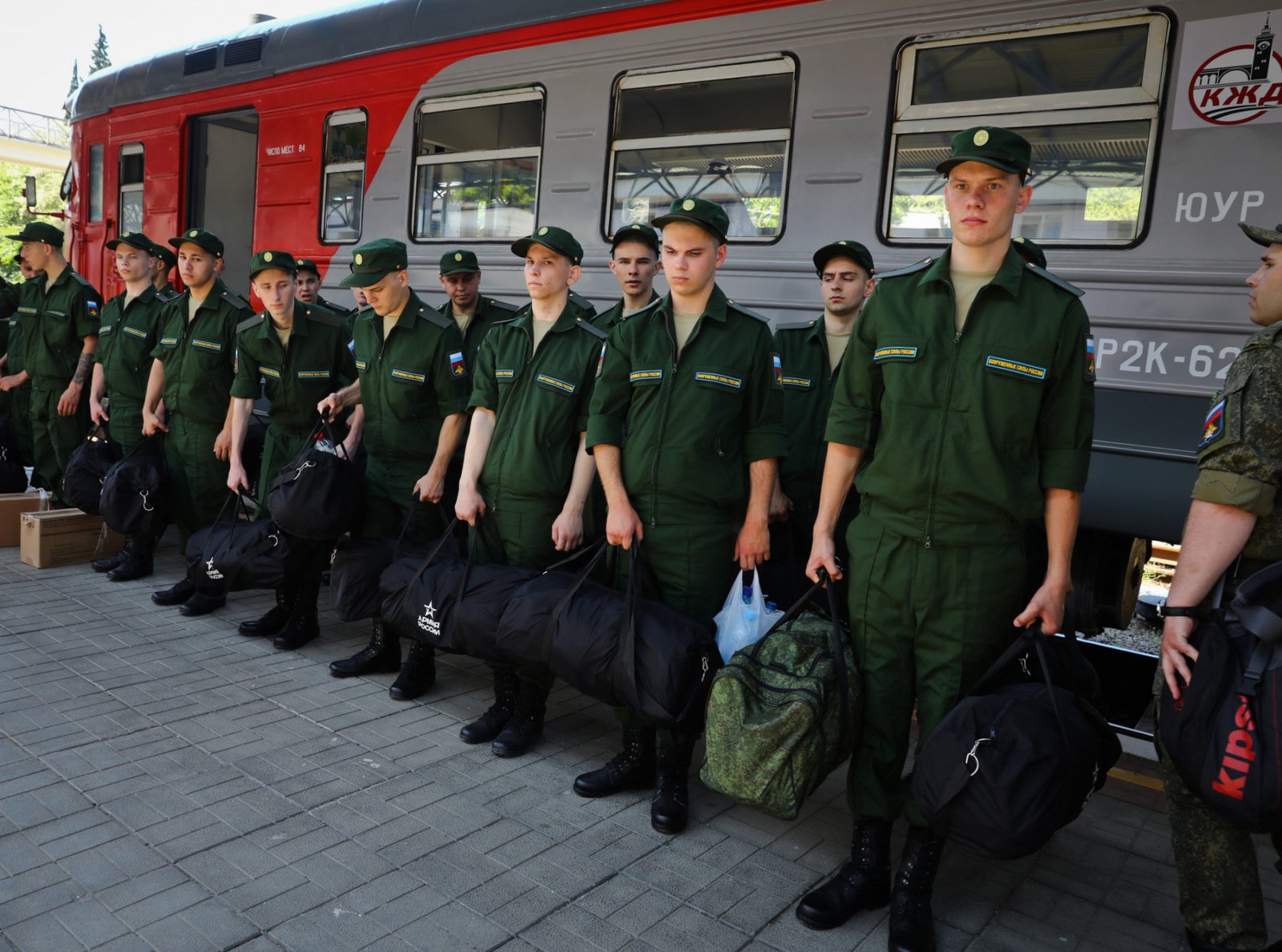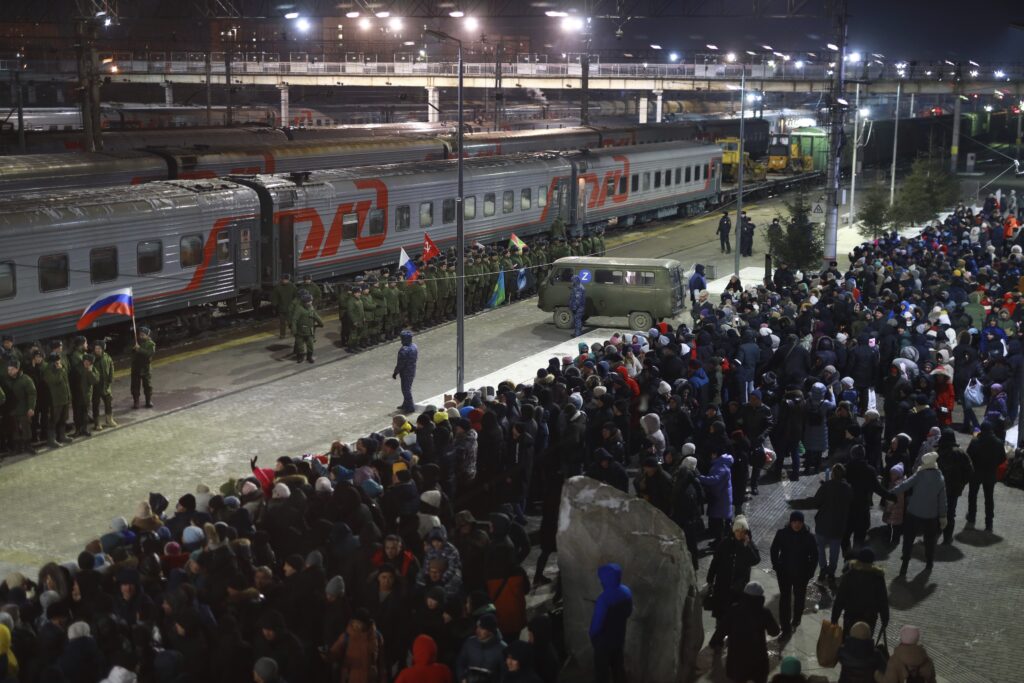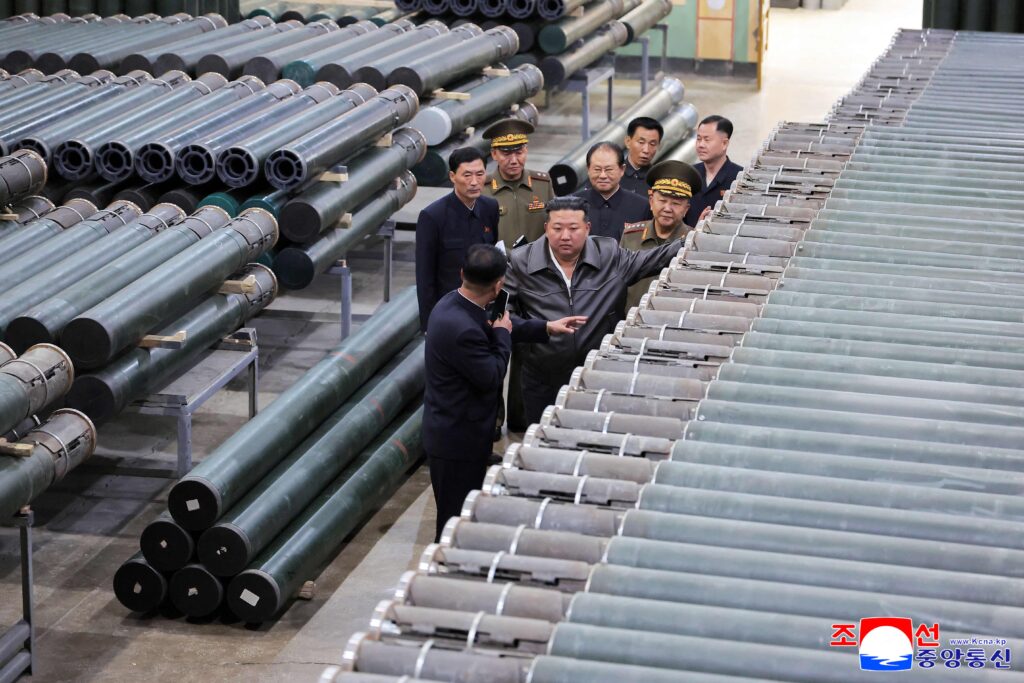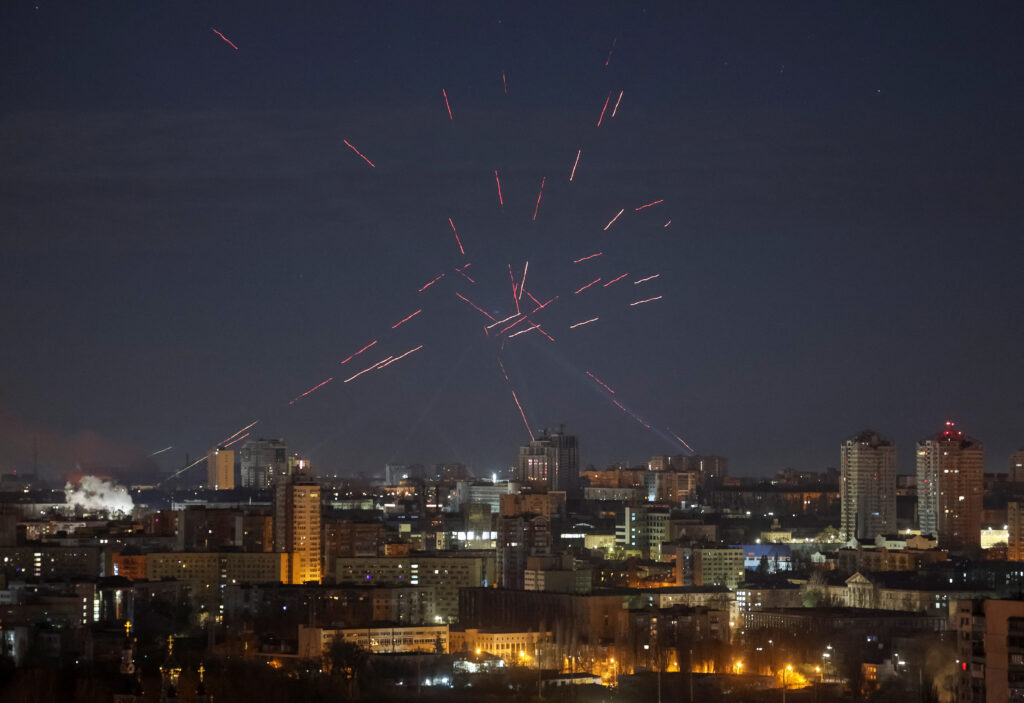During his latest presidential campaign, Vladimir Putin hinted at the gradual abolition of conscription in Russia. In his 2012 campaign, he also spoke of the need to introduce a contracted military service. The Russian opposition is also in favour of a military made up of voluntary recruits. For example, Alexei Navalny underlined the need for a service of 500,000 people who chose their military path, and not had it chosen for them by the authorities. However, abandoning conscription in an undemocratic country can, perhaps counter-intuitively, result in a further tightening of the screws by the political regime. It removes, after all, a counterweight to the siloviki.
Conscription as a safety valve in Russia
In the case of conscription, soldiers naturally band together based on common interests, views or ethnic groups. Still, the danger of ethnic schisms is minor, since the policy of regional rotation prevents the dominance of radicalised ethnic groups, while annual conscription does not give soldiers the opportunity to establish links with senior officers, or with other units.
Another important characteristic of a conscript army is that it is not used in external non-defensive conflicts. To begin with, unlike in the case of contract soldiers, the involvement of conscript units in international conflicts will certainly generate greater resistance within society. The lowest level of support for conscription was observed during the Chechen campaign in 2002.
Moreover, it is more difficult to use conscripts in combat operations because of their different level of training, experience and morale. Secondly, young Russians are drafted not only to serve in the armed forces but also in Rosgvardia (the National Guard of the Russian Federation), the Federal Security Service (border guard and transport services) and the Federal Protective Service.
Despite the existence of professionalized, volunteer-based military units, conscription makes it impossible to efficiently use these soldiers in domestic political clashes. For example, several Rosgvardia conscript units were used for cordoning off the least challenging areas during opposition rallies on May 5. Obviously, one year is not enough for a conscript to reach the level of professionalism and hostile attitude to protesters typical of officers and sergeants from Rosgvardia and the police, which is why volunteer policemen and OMON officers from Rosgvardia carried out the detentions. For example, operational police regiments Nos. 1 and 2 in Moscow are in charge of maintaining order during public events. These police officers are remunerated in the amount of 40,000 roubles a month, plus bonuses, and are entitled to 40 days of leave and other perks available to law enforcement officers. Conscript soldiers receive a monthly salary of no more than 2,000 roubles.
Thus, the presence of conscripts in the Russian uniformed services limits their illegitimate use, as well as the impact of national and ethnic factors.
Creeping quasi-privatisation of the siloviki
We are witnessing the ‘quasi-privatisation’ of the uniformed services in today’s Russia. The process is gradually curbing society’s informal control over the uniformed services, and introducing a quasi-market logic to the functioning of the siloviki.
First, all the latest activities of the Russian armed forces in Crimea, the Donbas and Syria were carried out by contractors only. This raised the effectiveness of operations, and there was also no need to worry about the consequences, since formally the servicemen had agreed on their own account to take part in combat.
Secondly, so-called ‘private military companies’ are used extensively whenever the Russian state cannot officially use its uniformed services. These include numerous Cossack and special Chechen formations. The high number of casualties among the Russian PMC in Syria in February this year showed the extent to which the Kremlin can unofficially employ uniformed services abroad. Attempts to legalise PMCs, supported by Sergey Lavrov, were in vain. The political connections of the commanding staff of these formations with the Kremlin, as well as colossal unofficial financial flows, made it impossible to legalise the PMCs and introduce at least informal institutional control over them. In addition to the PMCs, ethnic Chechen special forces (Spetsnaz) loyal to Ramzan Kadyrov and the Kremlin are also employed in Syria.
Secondly, in late 2016, the Ministry of Defence created an opportunity for conscripts who served for over 11 months or reservists to serve under short-term contracts. The ministry secured this option in the case of urgent operations, such as during the Russo-Georgian War, when units 693 and 135 of the motorized rifle regiments, comprising conscripts, were sent to South Ossetia despite the ban on using draftees in operations abroad. This law also provides conscript soldiers and sailors with additional income, for example during major drills or naval missions, whenever servicemen cannot be transferred to the reserves for objective reasons. In other words, the Ministry of Defence has legally created a safety cushion that can be used in emergency situations.
In domestic policy, the state actively involves Cossack squads, national liberation movement activists (NODs) and South-East Radical Block (SERB) activists to attack opposition leaders and disperse rallies. Moreover, Cossacks took part in the war in the Donbas, collected money for pro-Russian fighters in Ukraine and provided logistical support for ‘volunteers’ heading to Ukraine. Cossacks and NODs proved their mettle on May 5, violently attacking rally participants under police cover. These informal groups carry out functions that still cannot be performed openly by the state. The groups are indirectly financed via subcontractor agreements for the protection of public order and patriotic events. For instance, the Moscow administration spent 16 million roubles training Cossacks to safeguard public order; 100 volunteers were trained for three years to ‘maintain safety during public and mass events’.
Therefore, the creeping quasi-privatisation of the uniformed services and paramilitary formations is under way. Contract-based quasi-market relations ensure the engagement of contractors for all intents and purposes without a threat of serious resistance within the country.
Abolition of conscription as a point of no return
The existing system of mixed composition of the majority of uniformed services balances the scales to partly prevent the uncontrolled use of force by the government. Conscription prevents the unbridled use of the uniformed services within the country and abroad. Moreover, this somewhat limits the impact of these services on domestic policy. An entirely professionalized military, on the other hand, will influence the entire political system.
To begin with, the abolition of mandatory service in today’s undemocratic Russia is undoubtedly unfavourable to the promotion of individual rights and freedoms. Consequently, it will favour struggle between interest groups within the political elite, and the personal discretion of Vladimir Putin as regards the use of the uniformed services. In other words, the lack of conscripts will enhance the role of the siloviki within the state system, placing stronger leverage in the hands of the Kremlin.
Secondly, to ensure sufficient staffing, the Russian uniformed services will have to relive the fate of the American armed forces of the late 1970s after the abolition of conscription, when up to 50% of the personnel in the main infantry formations comprised poorly educated African Americans and Hispanics. According to the American sociologist David Segal, this was caused by the economic and educational marginalisation of non-whites. Ordinary white Americans preferred to work in the civilian sector, while non-white Americans treated military service as a source of a good income and a means of social mobility. Therefore, we can expect an influx of Caucasus natives and representatives of marginalised ethnic groups into the Russian armed forces who treat military service as a manly deed of honour. This will change the social composition of the lower ranks in the uniformed services.
Thirdly, the latest proposals of the Kremlin-affiliated ‘Centre for Strategic Research’ to use financial incentives to create a professional army do not take into account economic limitations or the motivation of would-be-contractors. It is essential to decisively improve the quality of service in order to attract urban residents with higher or secondary specialist education. This reform is necessary so that talented soldiers and sergeants don’t just join the military to obtain a flat, but also understand the global goals of the armed forces. That is why the training of officers and sergeants should approximate the level of education offered by leading civilian universities, which will gradually change the atmosphere in the army. Without transformation, without bringing meaning to service, the army will continue facing the problem of personnel turnover and over-representation of the less privileged layers of society.
Conscription is a burden for young Russian men, but it fulfils the role of a safety valve, which prevents the Russian uniformed services from becoming an integral part of the system and an even more powerful lever in the hands of the Kremlin. Conscription can be abolished with no negative consequences for society only if democratic changes evolve in Russia. All arguments in favour of mandatory service will lose their meaning when an independent parliament and civil society are able to ensure checks and balances.









